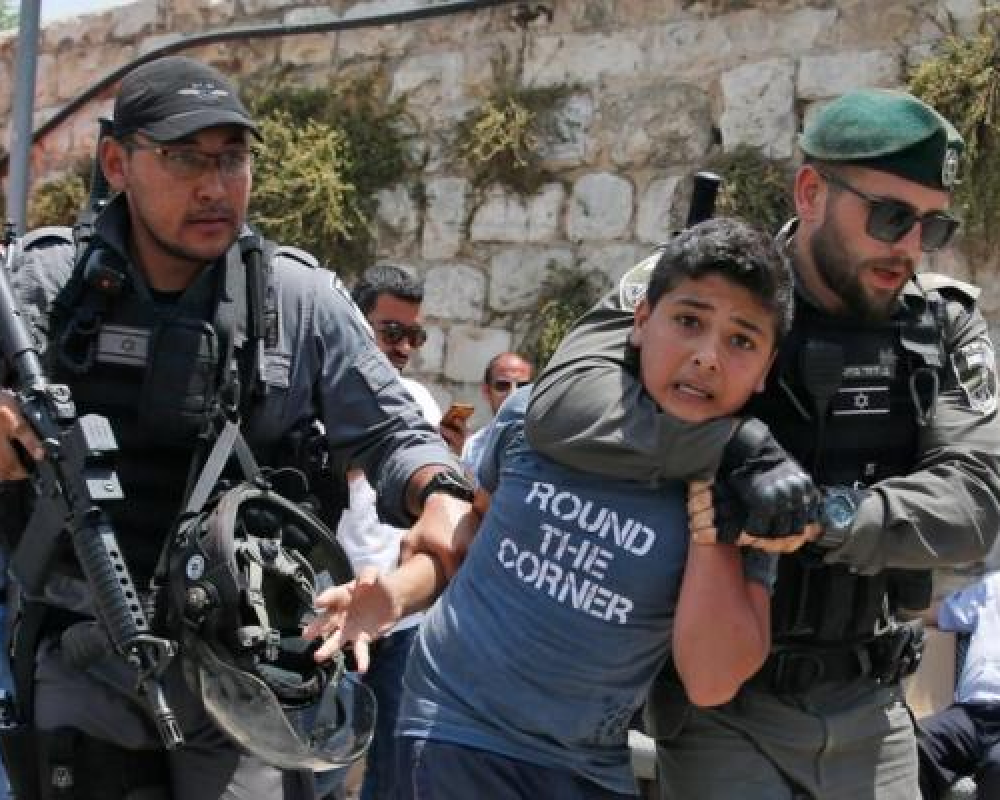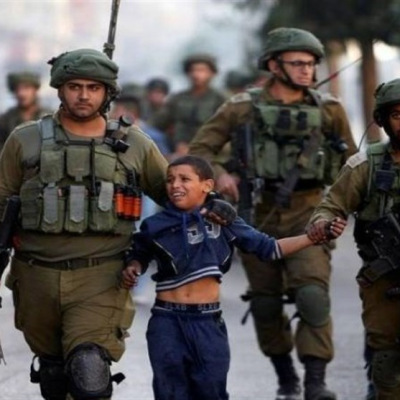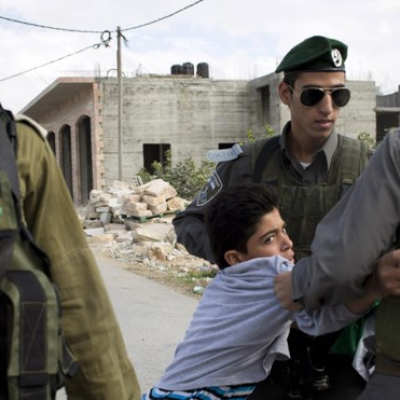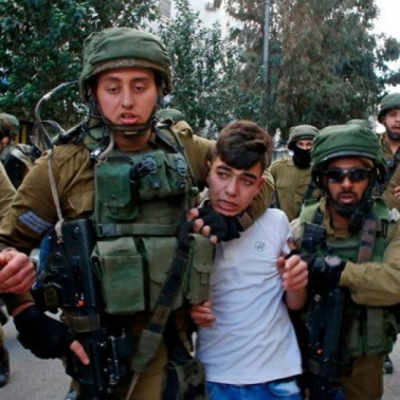
Ramallah / PNN / 29 March 2023 -
The excessive and deadly force used by the Israeli occupation forces against Palestinian civilians during their raids in Palestinian territories has primarily impacted children. In addition to violating the right to life of 17 children since the beginning of the year, their practices have left significant effects on other children, which have manifested in their behavior, thinking, and academic achievement, thus violating their rights guaranteed by international laws and threatening their psychological and social security.
In this regard, the Defense for Children International Palestine “DCI” documented the cases of several children from the Jenin Governorate, which is the most targeted by the occupation forces in terms of raids and number of martyrs.
Out of the 17 child martyrs since the beginning of the year, six are from the Jenin Governorate, in addition to the use of children as human shields, and the detention of others for long hours in their homes and using them as military barracks, sniper points, and observation posts during raids on the city and its refugee camp, greatly affecting the children.
A 17-year-old child (Y.A) told Defense for Children International Palestine, "On our way to school one morning, my friend Mahmoud Al-Saadi (17 years old) and I were confronted by the occupation army raiding the camp and firing from all directions. We each ran in different ways, only for me to later find out that my friend had been martyred (21-1-2022). We had planned to graduate from school together, go to university, and study together, but all of that was shattered. I've come to hate school and the way to it."

The 16-year-old child (W.Z) said, "The occupation's invasions of the camp have become our routine; the army can enter at any time. Consequently, I can't leave the house, fearing army raids while I'm outside. I used to go out and meet friends in the camp's alleys where there's no place for leisure or play. Imagine when leaving the house becomes a life-threatening matter. The details of our lives have been reduced to maintaining the bare minimum of life with caution, anticipation, and tension."
The 17-year-old child (M.N) said, "During every invasion, there are martyrs, gunfire, destruction of homes, and property damage. Bullets have penetrated the walls of our house, putting me in danger even while I'm in my bed. When I want to move inside the house, I have to crawl on my stomach in fear of a sniper bullet or a stray bullet. Death would be more merciful than this fear and anxiety. For more than a year, I haven't been able to sleep normally or for sufficient hours. Sometimes I wake up to the sound of gunfire and explosions, and other times I wake up due to nightmares. I can no longer distinguish between dreams and reality."
The 15-year-old child (R.A) pointed out that the camp "has become filled with images of martyrs, and behind each martyr, there is a story and memories. I have watched from the window of my house as young people were hit by occupation bullets and left to bleed until they died. I have also seen the fully burnt bodies of martyrs. I have become afraid to move even inside the house. I used to hate the night because of the frequent invasions, but now I hate the entire day, both day and night.

The camp was cramped in the past, but despite its narrowness, it accommodated us, our dreams, and our friends. Now, it has shrunk to its minimum limits. Our dreams have been suffocated, choked by the occupation with every invasion where a friend is martyred. Even our days as ordinary students have become a terrible burden. The camp, the street, and the school are filled with memories of our martyred friends."
He added, "The occupation forces killed our teacher, Jawad Bouaqna. He was the closest teacher to us, instilling energy and hope in us through his activities and his constant, vibrant movement. He had an exceptional ability to support us psychologically under the conditions experienced in the camp. Today, we have lost one of the most important sources of psychological support. The school has become a painful memory for our loved ones, and we try our best to distance ourselves from it."
During one of the invasions of the Jenin camp, Israeli occupation forces surrounded a house and took the father away from his wife and their two daughters, Tolin (2 years old) and Misk (1 year old). The occupation soldiers forced the mother and her daughters to stay in one of the rooms, which they used as a vantage point for surveillance, gunfire, and launching shoulder-fired missiles, putting the family's lives in extreme danger.
The father of the two girls told Defense for Children International that his daughters' behavior had changed drastically after this incident. Tolin, in particular, transformed from an active and curious child to a withdrawn, clingy, and easily distracted child who is afraid of any sound or movement. She also suffers from recurring nightmares and bouts of crying.
The Defense for Children International confirms that the practices of the occupation forces, including killing, arresting, invading, establishing military checkpoints, and other numerous violations against the Palestinian people, are taking advantage of the policy of impunity that comes with protection and immunity from accountability. This has led to the deterioration of the situation for children in Palestine and negatively impacted their access to their rights. Furthermore, the psychological effects of Israeli violations persist in the minds of those who have been directly harmed or injured.
